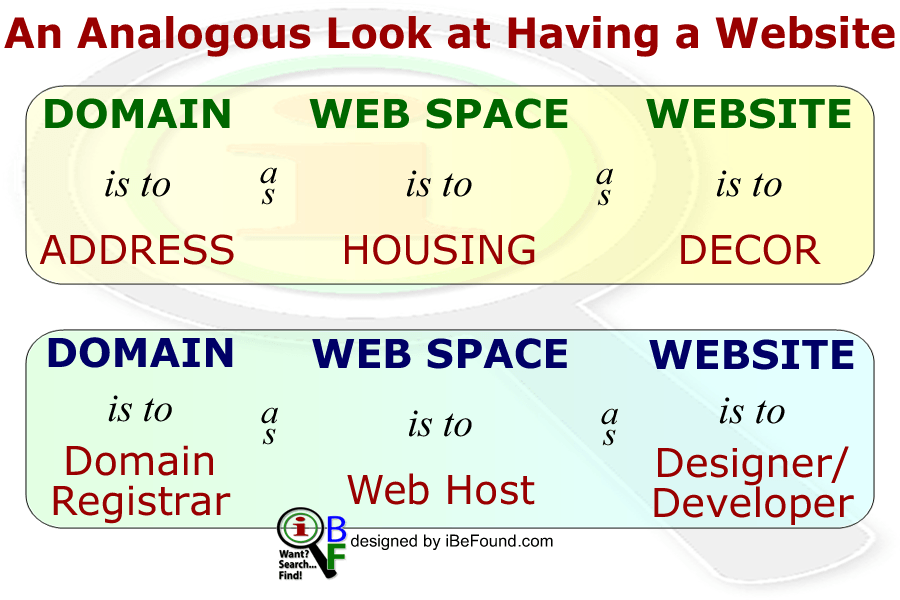- Tap for Menu
- Website Design ▼
- » Custom Website Design
- » Why Love Marketing Websites
- » Explore Website Features
- » Web Hosting Options
- » Website Design Process
- » Website Maintenance
- » Payment Options
- » Compare Website Options
- » Questions & Objections
- Portfolio ▼
- » ALL Website Examples
- » By WEBSITE TYPE ►
- » » 1PAGE Biz
- » » INTRO Biz
- » » BASIC Biz
- » » STANDARD Biz
- » » eCOM Sites
- » By BIZ NICHE ►
- » » Hospitality
- » » Product Sellers
- » » Professions
- » » Skilled Trades
- Testimonials
- Learning Center
- About ▼
- » Who We Are
- » Contact Us
Is YOUR Web Hosting Provider Proving its Worth?
- Navigation
- Website Design ▼
- » Custom Website Design
- » Why Love Marketing Websites
- » Explore Website Features
- » Web Hosting Options
- » Website Design Process
- » Website Maintenance
- » Payment Options
- » Compare Website Options
- » Questions & Objections
- Portfolio ▼
- » ALL Website Examples
- » By WEBSITE TYPE ►
- » » 1PAGE Biz
- » » INTRO Biz
- » » BASIC Biz
- » » STANDARD Biz
- » » eCOM Sites
- » By BIZ NICHE ►
- » » Hospitality
- » » Product Sellers
- » » Professions
- » » Skilled Trades
- Testimonials
- Learning Center
- About ▼
- » Who We Are
- » Contact Us
Web Host: Online Property Manager
As the infographic below shows, at some stage in setting up a website you will need to find a web host (or web hosting provider) with which to host your website.
A web host is a company that leases/rents out disk (web) space on their web server so that your website can be accessible via the Internet. Web hosts are like the property managers of the online world. They oversee various types of housing situations including apartment-like (shared hosting), townhouse-style (VPS – Virtual Private Servers), and detached housing (dedicated hosting).
Like the property managers of the real world, quality of web hosts running from downright sleazy at one end of the spectrum to top-notch at the other end. So, it is VERY important that you take the time to research and compare web hosts before putting up your hard-earned cash.
Before you continue reading to find out what to look for in a quality web hosting provider, make sure you’ve already determined what type of hosting you need as well as your minimum disk space and data transfer requirements.
Web Host: How to Choose
When it comes to choosing a web hosting provider, there are a variety of factors that you need to consider.
Reliability

This refers to the availability of the web host’s servers and is usually expressed as a percentaged value called uptime. Higher percentages represent greater reliability.
Most web hosting providers offer an uptime guarantee between 99 and 100% (not counting scheduled maintenance times). When creating your shortlist, aim for a minimum of 99.5% uptime. This translates to an average of about 1.83 days per year or 3.6 hours per month or 50.4 minutes per week [PDF] during which your website may be unavailable.
A point to note, 100% uptime guarantee (meaning no unscheduled downtime EVER from now to infinity) is a goal NOT a reality. Nevertheless, many web hosts do realistically have uptimes of 99.9%, 99.99%, 99.999%, etc.
Not all web hosts provide their uptime information on their website. WebHostingStuff provides an uptime monitoring service and purports to be “the only web hosting directory that independently tracks the uptime of 18,435 web hosting companies”. Just enter the company or domain name in the search box to find their uptime information.
Security

An often overlooked factor when researching potential web hosting providers is that of security. It is vitally important that you choose a web host who takes active steps to secure their web servers against misuse and outright attacks. They should have…
- a highly secured data center for their servers
- backup systems in the event of a power outage
- a remote server for daily off-site backups
- up-to-date virus and malware protection in place
- a properly configured firewall
A security-focused web host will also provide services to help you secure your website. These include:
- sFTP (Secure File Transfer Protocol) or SSH (Secure Shell) for secure file transfers.
- SSL (Secure Sockets Layer) support for encrypting sensitive data like credit card details.
- Antivirus and Anti-malware particularly for email accounts.
Some of this information may be readily available on the company’s website. If not, and they are on your shortlist, you should contact them directly (preferably by live chat so that you have a written record of their response) and ask about these issues.
24/7 Customer/Tech Support

Let’s elaborate a little on the analogy of shared hosting being comparable to an apartment building or complex.
Most reputable apartment buildings have some form of 24-hour support system. It might be an on-site desk clerk or a phone number to the maintenance personnel or a call center. These are there to assist particularly in cases of the unforeseen or the unexpected like losing your key or a plumbing issue, or some other such occurrence.
When choosing a web host, you want one where…
- the customer support is 24/7/365
- 2 or more contact options (including phone OR live chat) are available
- the response time is VERY quick
- the staff is courteous AND knowledgeable
You may need to do a bit of investigatory work by contacting the company to test their response time, customer etiquette, and technical knowledge. Then do a search for reviews to see what others have to say. Just remember that the majority of customers do not leave reviews. The ones who do, tend to do so when their experience is very good OR very bad.
Company Stability and Credibility
Start by visiting the company’s About page to determine when they were first established. Do a WHOIS lookup on the company’s domain name to see when it was first registered. You’re trying to determine how long the company has been in business. By and large, companies with some longevity tend to be more stable.
Determine whether the company is a primary hosting provider or a reseller. Primary hosting providers have their own data centres filled with their own web servers OR they lease web servers in the data centre of another mega-company.
It may surprise you to know that some of the biggest web hosts do NOT own the web servers on which their clients’ websites are hosted. Rather, they are LEASING the web servers from another company. For example, Softlayer owns thousands of web servers around the world. One of its main service is leasing out its web servers to hosting companies. One well-known hosting company that leased web servers from Softlayer up until 2013 is HostGator.
Web hosting resellers generally have a reseller account with a primary hosting provider which allows them to resell their hosting services. Some companies or individuals that provide other internet services may become hosting resellers so as to offer this add-on service to their customer base. These may include web designers, domain registrars, and online directory owners.
There are pros and cons with choosing either a primary provider or a reseller. If you are leaning towards a company that is a hosting reseller, make sure that they have a good track record in terms of customer support. Also, research the company whose services they are reselling to see how they stack up as far as the other hosting factors discussed herein are concerned.
User-Friendly Control Panel

Obviously you wouldn’t want to sign up for a hosting account, log in and find that you cannot make heads nor tails about where things are and how they work in your back office. You would want a control panel that is easy to understand and use.
Most web hosts will be using one of the following control panels. Click on the link for a live demo or a video explaining the features.
- cPanel: long-standing, most used hosting control panel but not the best layout.
- Plesk: scroll down to Simple View Mode (Site Management) and Login.
- vDeck: newcomer but fast gaining popularity for its slick layout and features.
For web hosts that use another type of control panel, be sure to test drive a live demo of it or look for a video (or screenshots) that details the various features.
Necessary Features and Extras
Besides the security features we discussed above, there are other necessary features that should make up your hosting package. Unless you have some knowledge of web design/development, you may not understand the importance of having these features. Nevertheless, make sure that they are included in your hosting package.
Developer’s Features:
- PHP
- MySQL
- Perl
- FTP / SFTP / SSH
- Server Side Includes (SSI)
- Cron Jobs
- .htaccess
Email Features:
- POP3 / IMAP / SMTP
- Webmail
- Mail Forwarding
Desirable Extras:
- An easy website builder
- 1-Click script installs (like Softaculous)
- Site migration assistance
The Fine Print
When you sign up with a web host, you AGREE to their terms and conditions. So, it’s imperative that you understand what you are agreeing to BEFORE you make the commitment.
In particular, make sure to review the following sections of the TOS…
- Refund Policy (how long, how much, and what’s included)
- Acceptable Use Policy (what’s allowed, the consequences for breaking the rules)
Web Host: Other Concerns

Server Location
A question that often comes up when searching for a web host is that of whether to have your website hosted within your country of residence or with an overseas company.The more reputable web hosts have 24/7 phone and/or live chat support in addition to email support. So, that is NOT really a valid reason for choosing to host your websites locally.
Another reason that should NOT be a MAJOR factor when deciding on a geographic location in which to hosts your websites is that of SEO and search ranking. To this end, I’ll let the king of search, Google speak for itself…
From Google Webmaster Central FAQ…
- Q: Is the server location important for geotargeting?
A: If you can use one of the other means to set geotargeting (ccTLD or Webmaster Tools’ geotargeting tool), you don’t need worry about the server’s location. We do, however, recommend making sure that your website is hosted in a way that will give your users fast access to it (which is often done by choosing hosting near your users).
Here’s Google employee, John Meuller‘s response to the question, “How important role hosting server IP address plays in ranking of a website now?”
- From a usability point of view, having a really fast site is awesome — and like others mentioned, sometimes local hosting (or local CDNs) can help there.
For search, specifically for geotargeting, the server’s location plays a very small role, in many cases it’s irrelevant. If you use a ccTLD or a gTLD together with Webmaster Tools, then we’ll mainly use the geotargeting from there, regardless of where your server is located.
You definitely don’t need to host your website in any specific geographic location — use what works best for you, and give us that information via a ccTLD or Webmaster Tools.
However, there are some distinct advantages to selecting a web hosting provider with data centres located in your country. These include…
- time for scheduled maintenance: a hosting company will usually try to schedule any necessary maintenance that may result in downtime during the hours that will cause minimum negative impact to its customers. This is generally during the late night to early morning hours.
- billing currency: more often than not, the prices are in the local currency of the hosting provider. If this currency is different from your own then ever-changing foreign exchange rates must also be considered. As a result, your cost per billing period will fluctuate.
- consumer protection: when dealing with a non-local company, you must bear in mind that your rights as a consumer may not be protected in the jurisdiction where that company resides.
- content delivery speed: in general, the closer your target audience is to your website’s server location, the quicker they can access your web content. With the introduction of Content Delivery Networks (CDNs), this reason for choosing a local hosting company is fast becoming null and void.
- language: obviously, you want to choose a web hosting provider that communicates in your preferred language.
Reasonable Pricing

Web servers and the software that runs them are NOT free. Keeping them up-to-date and running smoothly is NOT a cost-free process. Required systems for heating/cooling, water, power, security, and the personnel that handles these things adds to the bills of a hosting company. Support staff and other employees need to be paid for their services.
The point is, do NOT just look at price when choosing a web host. There comes a point where cheap hosting will cost you much more in the long run. So, consider all the other factors to compile your shortlist of potential host and only use cost as a tie-breaker.
Once you’ve decided on a company, contact them to see what specials they might have available. Be sure to get it in writing either via live chat or by email. Recently we moved some of our hosting accounts to a new host. I contacted the company via live chat and was able to get a discount of over 50% of the best price being advertised on various coupon sites.
Room for Growth
When first starting out, a shared hosting account that meet your minimum disk space and data transfer requirements may be good enough. But you will want to choose a web host offers 2 or 3 levels of shared hosting so that you can easily upgraded as needed.
Free Domain Name
Some web hosting providers offer a free domain as part of one or more of their hosting packages. The domain name might be free for just the first year of service or for life (i.e. as long as you are with THAT hosting company).
Check the fine print to determine what conditions are tied to the “free” domain. You might find that the domain is NOT registered in your name. This means that you are not the legal owner of that domain name. OR you may have to pay extra to take the domain name with you if you ever decide to change web hosts.
Web Host: Some Suggestions
I understand how time-consuming and frustrating the process of finding a quality web host can be. I recently had to do it since we needed to move our hosting accounts away from the company we were with.
Anyway, as promised, I’ve done the brunt of the work for you and compiled a list of web hosting providers in the top geographic regions. So, if you’d like a starting point for choosing a web hosting provider, you will definitely want to check out the article, Local Web Hosting Providers Based in Top Regions Worldwide.
In the Meantime…
For more on web hosting providers, you might find the following resources helpful:
Also, visit our “Web Hosting Guidelines” board on Pinterest for some more insights.
Follow iBeFound International Ltd's board Web Hosting Guidelines on Pinterest.
Time for YOUR input
- So, is YOUR web hosting provider proving its worth? How or Why not?
- What factors are MOST important to you in choosing a web hosting provider?
- Business Owners: What challenges (if any) have you faced in finding a reliable web host?
Start the Conversation with a Consultation Request!
Check Out NZ Locations We Serve
Auckland Bay of Plenty Canterbury Gisborne Hawke's Bay Manawatu-Wanganui Marlborough Nelson Northland Otago Southland Taranaki Tasman Waikato Wellington West Coast See Recent Website Design Projects
© 2014 - 2025 iBeFound Digital Marketing,
a subsidiary of iBeFound International Ltd
PO Box 321, Hāwera 4640
021 227 9922


